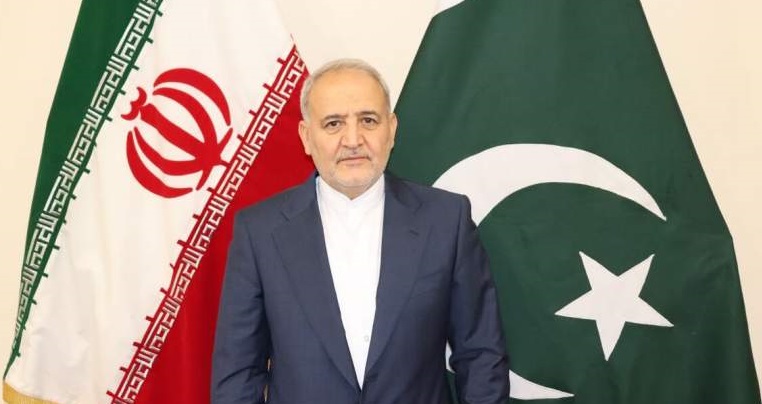ISLAMABAD: The Institute of Regional Studies (IRS) organized a roundtable titled Iran’s Global Outlook and Opportunities for Pak-Iran Bilateral Relations to discuss the multifaceted dynamics shaping the relationship between the two neighboring countries. The Iranian Ambassador to Pakistan, H.E. Dr. Reza Amiri Moghadam, emphasized Iran’s commitment to its nuclear program despite international sanctions. He noted that Iran is open to dialogue but firmly opposes the undue pressure and unilateral agendas of Western powers. He described Iran’s stance as rooted in its historical defiance of bloc politics, particularly during the Cold War, which marked an unprecedented rejection of superpower dominance.
Furthermore, he highlighted Iran’s strong opposition to the brutality of the Zionist regime in Gaza and Lebanon, calling it “genocidal” and urging the collective conscience of the world to stand against such inhumanity. While rejecting foreign dominance, he advocated for meaningful bilateral and multilateral engagement, emphasizing Iran’s readiness to deepen its relationship with Pakistan across various domains.
Senator Mushahid Hussain Sayed in his keynote address underscored the cultural and historical camaraderie between Pakistan and Iran, rooted in shared heritage and traditions. Commending Iran’s resilience in the face of sanctions and external pressures, he proposed actionable steps to strengthen bilateral ties. “Allama Iqbal’s Persian poetry can serve as a unifying factor,” he remarked, adding that open trade borders, enhanced border markets, and a revised Pak-Iran gas pipeline project could serve as game-changers. He further suggested aligning Gwadar and Chabahar as sister ports and forming a triangular partnership between Iran, China, and Pakistan.
Ambassador Jauhar Saleem, President IRS, highlighted the enduring ties between Pakistan and Iran, which have withstood the challenges of time. He called for expanding bilateral cooperation in youth engagement, security, culture, trade, and civilization. Both countries hold significant positions in the Muslim world, and extensive arenas of cooperation remain untapped, he noted.
Dr. Syed Qandil Abbas, Associate Professor at Quaid-i-Azam University, presented a Pakistani perspective on regional connectivity and economic potential. He discussed the opportunities offered by Chabahar and Gwadar ports, as well as the Shanghai Cooperation Organization (SCO) and the China-Pakistan Economic Corridor (CPEC). Dr. Abbas also addressed challenges such as terrorism, smuggling, and human trafficking, emphasizing the need for effective border management and functional border markets. Pakistan and Iran’s economic ties remain far below potential. Realizing this potential requires collaborative efforts, he asserted.
Mr. Muhammad Mehdi, Chairman of the Institute of International Relations and Media Research, emphasized the unchangeable bond between neighbors. Reflecting on historical milestones, he noted that Pakistan was the first to recognize the Iranian Revolution, despite US opposition, underscoring Pakistan’s independent foreign policy approach. He highlighted Pakistan’s unique role as an intermediary in Iran’s interactions with the United States, advocating for better mutual understanding. If Pakistan plays a proactive role in fostering dialogue, the region could witness improved stability and economic progress, he suggested.


